Evidence-Based Practice in Nursing and Healthcare Practice 2nd Edition Mazurek Melnyk Fineout Overhaul
|
1. |
In the hospital where Nurse L. provides care, tradition dictates that oral temperatures be included in every set of patient vital signs, regardless of patient diagnosis or acuity. This is most likely an example of which of the following phenomena? |
|
A) |
The prioritization of internal evidence over external evidence |
|
B) |
Practice that lacks evidence to support its application |
|
C) |
The integration of personal expertise into nursing care |
|
D) |
Evidence-based practice |
|
2. |
The clinical nurse educator (CNE) on a post-surgical unit has recently completed a patient chart review after the implementation of a pilot program aimed at promoting early ambulation following surgery. Which of the following components of EBP is the nurse putting into practice? |
|
A) |
Patient preferences |
|
B) |
Research utilization |
|
C) |
Experience |
|
D) |
Internal evidence |
|
3. |
Nurse R. has observed that reorienting demented patients as frequently as possible tends to minimize the patients’ level of agitation in the evening. The nurse has shared this observation with a colleague, who is skeptical, stating, “It’s best to stick to evidence-based practice.” How can Nurse R. best respond? |
|
A) |
“EBP can include clinicians’ personal expertise.” |
|
B) |
“Personal experience is often more sound than formal evidence-based practice.” |
|
C) |
“Traditional practice and EBP are usually shown to be the same.” |
|
D) |
“My years of experience can be just as valuable as any literature review or randomized trial.” |
|
4. |
Which of the following factors provides the most important rationale for the consistent implementation of EBP? |
|
A) |
EBP provides for the most cost-effective patient care. |
|
B) |
EBP is accessible to all healthcare clinicians. |
|
C) |
EBP provides consistency in care across healthcare settings. |
|
D) |
EBP improves patient outcomes. |
|
5. |
The Institute of Medicine’s Roundtable on Evidence-Based Medicine has been established to address EBP. Which of the following issues is the Roundtable emphasizing? |
|
A) |
Ensuring that external evidence, rather than internal evidence, is integrated into care |
|
B) |
Fostering the level of learning that exists in the American healthcare system |
|
C) |
Issuing clinical guidelines to ensure best nursing practice |
|
D) |
Comparing the implementation of EBP in the United States with that of other Western countries |
|
6. |
You have become frustrated with some aspects of patient care that you believe are outdated and ineffective at the long-term care facility where you have recently begun practicing. Consequently, you have resolved to examine some of these practices in light of evidence. Which of the following should occur first in the steps of EBP? |
|
A) |
Conducting an electronic search of the literature and ranking individual sources |
|
B) |
Creating “buy-in” from the other clinicians who provide care at the facility |
|
C) |
Developing an inquisitive and curious mindset |
|
D) |
Assessing whether the practices in question may, in fact, be evidence-based |
|
7. |
Which of the following clinical questions best exemplifies the PICOT format? |
|
A) |
What effect does parents’ smoking have on the smoking habits of their children, ages 13 to 16? |
|
B) |
Among cancer patients, what role does meditation, rather than benzodiazepines, have on anxiety levels during the 7 days following hospital admission? |
|
C) |
Among undergraduate college students, what is the effectiveness of a sexual health campaign undertaken during the first 4 weeks of the fall semester as measured by incidence of new gonorrheal and chlamydial infections reported to the campus medical center? |
|
D) |
In patients aged 8 to 12, is the effectiveness of a pain scale using faces superior to a numeric rating scale in the emergency room context? |
|
8. |
After formulating a clinical question, a nurse has proceeded to search for evidence for ways to foster restful sleep in patients who are receiving care in the intensive care unit (ICU). The nurse has identified a relevant meta-analysis in an electronic database. What will this source of evidence consist of? |
|
A) |
A statistical summary of the results from several different studies |
|
B) |
An examination of the theoretical and conceptual underpinnings of the issue |
|
C) |
An interdisciplinary analysis of the clinical question |
|
D) |
A qualitative study of different interventions related to the clinical question |
|
9. |
The nurses on a postpartum unit have noted that many primiparous (first-time) mothers are giving up on breastfeeding within the 24 hours following delivery, and the nurses want to create uniform guidelines for promoting breastfeeding on the unit. Which of the following sources is most likely to provide the best evidence in their quest for an intervention? |
|
A) |
Evidence from a randomized control trial that had more than 2500 participants |
|
B) |
Evidence from a study that is widely regarded as a classic within the obstetrical nursing community |
|
C) |
Evidence from a systematic review of breastfeeding-promotion studies that one of the nurses identified in an electronic database |
|
D) |
The consensus opinion of the most senior nurses on the unit |
|
10. |
The nurse educator on an acute medicine unit is advocating for the use of evidence-based clinical practice guidelines on wound care in order to standardize and optimize the practice of the nurses on the unit. Which of the following statements best describes clinical practice guidelines? |
|
A) |
The result of replication studies of existing research by an impartial third party |
|
B) |
A collection of authorized interventions that are required by law |
|
C) |
A number of interventions that are the result of a large, publically-funded RCT |
|
D) |
A group of practice recommendations that result from a rigorous review of the literature |
|
12. |
The primary care provider of a 49-year-old male patient has examined and briefly explained the evidence that supports beginning regular digital-rectal exams. Which of the following factors would justify not performing digital-rectal examinations in this patient’s care? |
|
A) |
The patient is vehemently opposed to undergoing a digital-rectal exam. |
|
B) |
Clinical practice guidelines for prostate care have not been published. |
|
C) |
The clinician has been unable to find any large RCTs in a literature review. |
|
D) |
The clinician has previously waited until patients are 55 to begin regular digital-rectal exams. |
|
13. |
The implementation of a new, evidence-based infection-control regimen in a community hospital has resulted in a significant reduction in the incidence of nosocomial (hospital-acquired) infections. What should constitute the final step in the nurses’ evidence-based practice? |
|
A) |
Calculating the cost-savings that will be realized by using the new regimen |
|
B) |
Sharing their experience with other healthcare professionals |
|
C) |
Implementing enforcement measures to ensure compliance with the new regimen |
|
D) |
Conducting a meta-analysis of other infection-control measures |
|
14. |
Frustrated by the lack of follow-up provided to patients who are newly diagnosed with type 2 diabetes, a community health nurse has begun the process of identifying evidence for the best interventions for this patient population. Which of the following factors is most likely to promote the use of EBP in this nurse’s workplace? |
|
A) |
Bringing in nurses who have been educated at a baccalaureate (bachelor’s degree) level |
|
B) |
Increasing nurses’ accountability for patient outcomes |
|
C) |
Increased funding |
|
D) |
Support from the practice leaders and administration |
|
15. |
In the process of advocating for EBP in the unit guidelines around the management of increased intracranial pressure, a nurse has met with skepticism from other members of the nursing staff, with several stating, “Evidence-based practice is good in theory, but it’s almost impossible to actually search hundreds of journals and find the evidence.” What could the nurse recommend? |
|
A) |
Self-reflection on the nurses’ current practices |
|
B) |
Accessing the Cochrane Library |
|
C) |
Contacting the clinical nurse educator on the unit |
|
D) |
Beginning with lay publications before progressing to peer-reviewed journals |

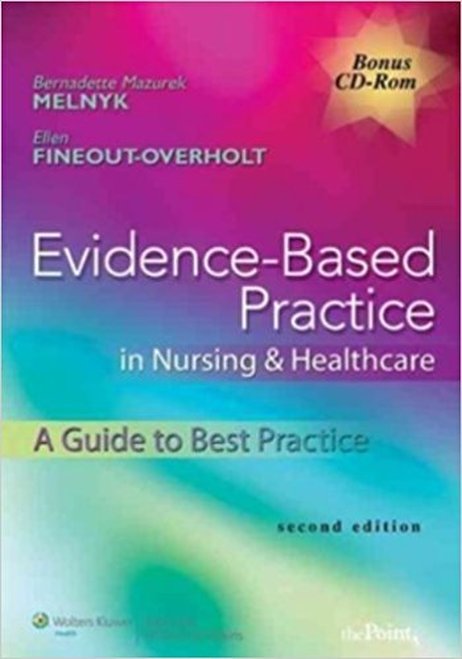
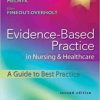
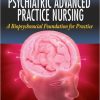
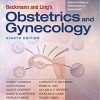

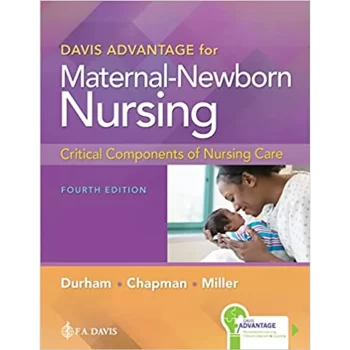
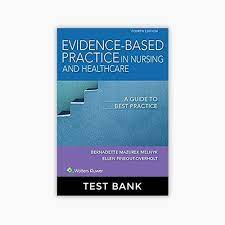
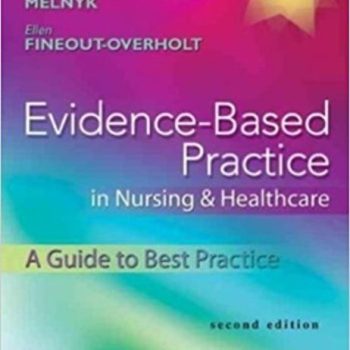
Reviews
There are no reviews yet.